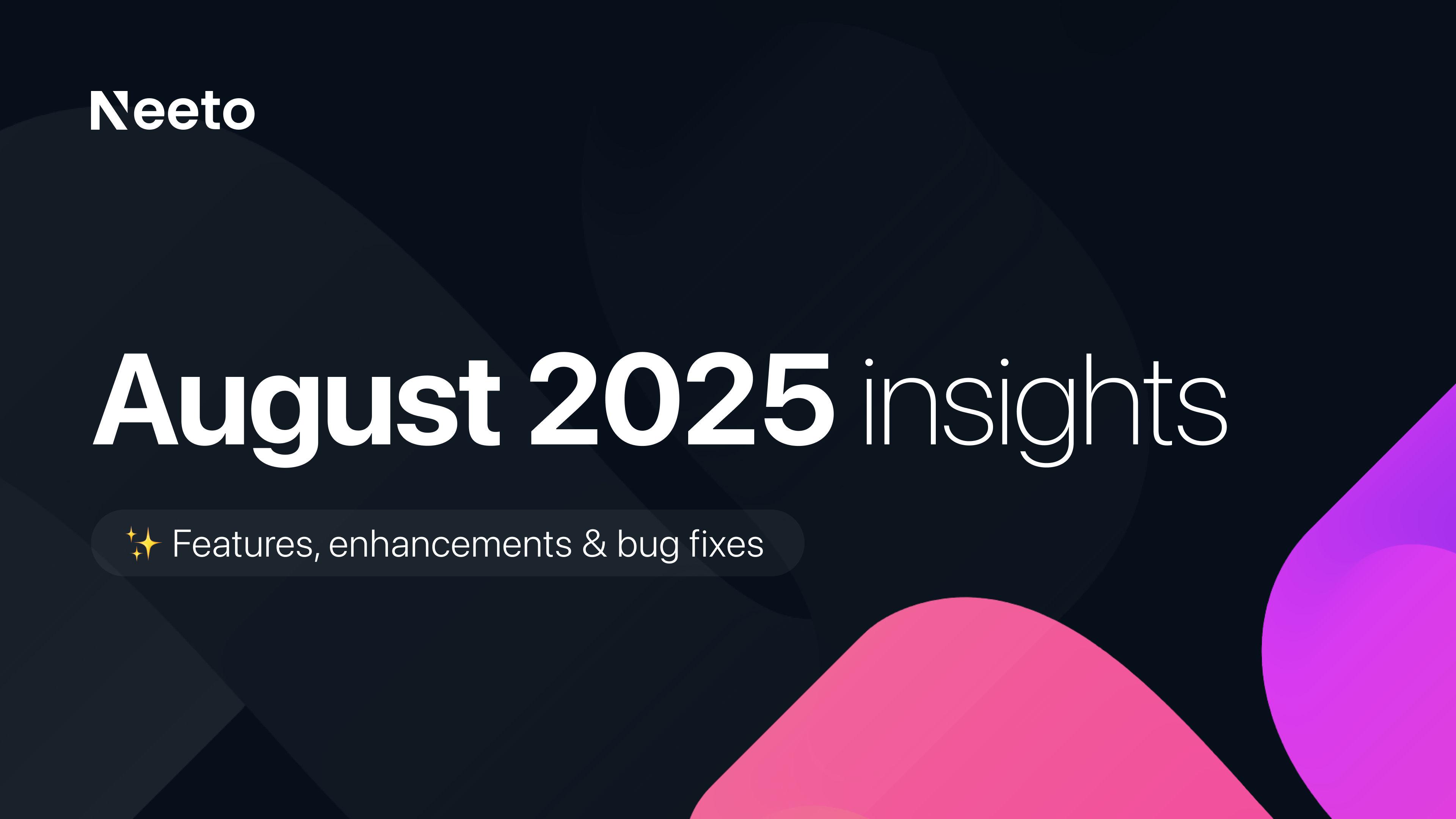August 2025 updates – Persistent drafts, flexible email routing, and faster bulk actions

September 3, 2025

Let’s go through what we got done in August 2025 in NeetoDesk.
New features ✨
✅ Persistent draft messages
Agents can now pick up exactly where they left off with draft replies that auto-save across sessions. This feature is also available via the public API — so drafts are never lost, even across page reloads or disconnects.
✅ Cross-mailbox ticket creation
Emails sent to one mailbox can now create tickets in a different mailbox. This unlocks more flexible workflows for support teams handling shared or role-based inboxes.
✅ Add and insert canned responses
You can now choose to “Add and insert” canned responses, giving agents better control over response templates and how they’re applied during conversations.
✅ Public API for ticket messages
We’ve added a new public API endpoint that lets you fetch all messages associated with a ticket — making it easier to build dashboards, export histories, or power external workflows.
✅ Navigation component: “Also on this page”
We've introduced a display on ticket details page that shows who else (team members of the workspace) is currently looking at the same ticket details page. This allows the user to make decisions about replying if someone else is already on it.
Enhancements ✨
✅ Asynchronous bulk trashing
Bulk trashing large sets of tickets now happens in the background — making the interface more responsive and freeing you to keep working while cleanup runs in parallel.
✅ Better Microsoft account handling
We improved how we react to Microsoft API events like subscription expiry or missing subscriptions — helping prevent email sync disruptions.
✅ More reliable email delivery
We’ve added better error handling for email failures (like SMTPFatalError), so outgoing emails are more robust and less likely to silently fail.
✅ Schema-level performance boosts
Used insights from active_record_doctor to optimize the database schema, improving the overall performance of core ticket workflows.
Bug fixes 🛠️
✅ Ticket uniqueness and loop handling
Fixed edge cases where system-generated or auto-reply emails could create duplicate or looping tickets. We also patched issues with ticket number uniqueness in specific org setups.
✅ DKIM setup and support mailbox fixes
DKIM record visibility issues were fixed, and re-verifying previously removed support emails now works smoothly.
✅ Reply formatting fix
Replies using canned responses no longer add unnecessary indentation — cleaner, more professional messages by default.
✅ Case-insensitive email reply handling
Replies from the same customer using different email casing (like [email protected] vs [email protected]) now correctly associate with the same ticket.
✅ Slack integration improvements
Messages from Slack users are now attributed to the correct customer instead of defaulting to the Slack team creator.
✅ API consistency for email fields
Standardized the structure for to and cc fields in ticket creation via public API to match documentation.
Ready to elevate your
customer support?
Let's get started now.